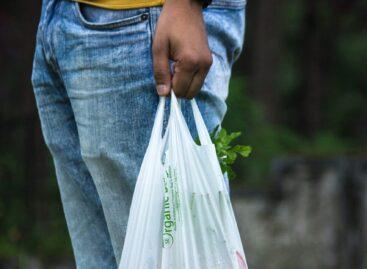The composted bags disappeared in half a year in the investigation of Humus and Greenpeace
After six months, the shopping bags disappeared in the composting experiment of the Humus Association and Greenpeace Hungary, in which they investigated whether the decomposable bags of grocery stores would live up to the expectations placed on them by placing them in a professional composter.
 However, green organizations continue to emphasize that degradable plastics are not a solution to the raw material and waste crisis, as research proves that these types of bags can also contain harmful additives and leave behind microplastic pollution. In addition, home composting of degradable plastics is currently a solution that is not available to the majority – Greenpeace Hungary stated in its statement delivered to MTI on Wednesday.
However, green organizations continue to emphasize that degradable plastics are not a solution to the raw material and waste crisis, as research proves that these types of bags can also contain harmful additives and leave behind microplastic pollution. In addition, home composting of degradable plastics is currently a solution that is not available to the majority – Greenpeace Hungary stated in its statement delivered to MTI on Wednesday.
As they write, after half a year, no visible pieces of compostable bags with thicker and thinner walls from ALDI, Auchan, SPAR and Tesco remained in the Humus Association and Greenpeace Hungary experiment, which the environmental organizations launched on April 21.
Related news
According to Greenpeace, the new redemption system is not even in the pipeline
🎧 Hallgasd a cikket: Lejátszás Szünet Folytatás Leállítás Nyelv: Auto…
Read more >Supermarket plastic bag use falls 98% since introduction of 5p charge
🎧 Hallgasd a cikket: Lejátszás Szünet Folytatás Leállítás Nyelv: Auto…
Read more >Related news
Innovations, success stories and awards on the same stage
🎧 Hallgasd a cikket: Lejátszás Szünet Folytatás Leállítás Nyelv: Auto…
Read more >Farewell day at the 60th anniversary EuroShop trade fair
🎧 Hallgasd a cikket: Lejátszás Szünet Folytatás Leállítás Nyelv: Auto…
Read more >








